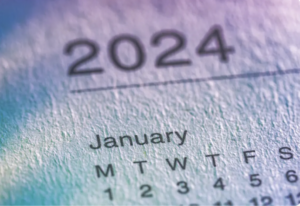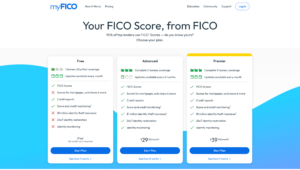Improving credit scores can take an arsenal of strategies.
Common strategies to improve credit scores include making on-time payments, reducing debt, disputing or settling collection accounts and even requesting a goodwill removal of negative marks from a creditor.
But one strategy is often overlooked – getting a personal loan. Personal loans are the fastest growing type of loan – and they could help save you money by consolidating debt and improve your credit scores over time.. A personal loan can help build a good credit score, as well as foster financial responsibility.
What is a personal loan?
A personal loan is an unsecured loan with a fixed interest rate that is typically repaid over a number of years. Unsecured loans are issued without the need for collateral and are based on the borrower’s creditworthiness.
Depending on your credit profile, you may be able to qualify for the lowest rate personal loans but if your credit is shaky you may only qualify for a personal loan for bad credit. Personal loans for bad credit will likely have a high-interest rate.
6 Ways a personal loan can help improve scores
- Demonstrate Creditworthiness. When rebuilding credit scores it’s important to have current positive credit reporting. Open and active accounts are scored more highly than closed accounts because they demonstrate that you are managing credit well now and not just in the past. In addition to credit cards, a personal loan will help add positive credit if paid on time and build a strong credit history.
- Debt Consolidation. A popular and good use of a personal loan is to consolidate multiple debts into one debt, which may reduce the risk of multiple delinquencies appearing on your credit report if you have multiple credit accounts. Paying down debt will reduce your debt-to-limit ratio on credit accounts. The lower your utilization, preferably 10% or less, the higher your credit score.
- Installment debt vs. Revolving debt. Credit cards are considered revolving loans and have no fixed repayment term. Personal loans are considered installment loans, which means they carry a fixed repayment term. Most credit scoring models penalize you for using more than 30% of your available credit limit on revolving debt (credit cards). But in most cases, the balances on your installment loans (personal loans) aren’t factored into this ratio. Paying down installment loans is a good sign that you’re able to repay debt but installment loans have a much smaller impact on this portion of your credit score. If you have high credit card debt your credit scores will suffer. The closer you are to your credit limit, the lower your credit score. When you swap credit card debt for a personal loan, you can lower your credit utilization.
- Credit Mix Improved. FICO, the most widely used credit scoring system, likes to see a good credit mix which includes revolving credit such as credit cards along with installment credit such as a personal, auto or mortgage loan. The credit score considers the mix of different types of accounts on your credit scores, and ideally you want to have both installment and revolving accounts listed.
- Lower interest. Personal loans typically have a much lower interest rate than credit cards. You may be able to save some extra money or even put more money towards reducing other debt.
- Improve Payment History. We know that FICO, the major credit scoring system, says payment history accounts for 35% of a credit score. Payment history is one of the most significant factors in determining creditworthiness. It is essential to make payments on time and in full, as this can help establish a positive payment history and improve credit scores, making it easier to qualify for loans, credit cards, and other credit products in the future.
Finding a personal loan when you have bad credit
The best place to start looking for a personal loan when you have bad credit is a bank, credit union or online lender. Even if your credit is less than perfect a good banking relationship may allow you to borrow. Several banks offer loans with no credit check for customers.
Another source of personal loans for less than perfect credit is online lenders for bad credit. These types of loans may have higher interest rates but with on-time payments reported to the major credit bureaus, you’ll have an opportunity to improve you credit profile and scores.
Alternatives to a personal loan
- Zero Balance Transfer Card. People with good to excellent credit may want to consider paying off existing credit card debt with a zero interest balance transfer credit card. But this option should only be visited if you can pay off the balance transfer card within the 0% interest time period, typically 12 months to 18 months.
- Home equity loan. If you own your home, a home equity loan is usually a lower cost option. However, unlike a personal loan, a home equity loan is a secured loan so that means your home serves as collateral and can be claimed by the lender if you default.
- Credit-builder loan. With a credit-builder loan the borrower agrees to borrow a small amount of money, typically ranging from a few hundred to a few thousand dollars, which is held in a savings account or certificate of deposit (CD) until the loan is fully repaid.
Final thoughts
Borrowing money for any purpose is a big deal. If you know you’ll have the money to make the loan payment every month, a personal loan could be beneficial in helping improve credit scores. But if you’re already living on a tight budget, a personal loan could lead to trouble. Late or missed payments will ruin your credit score.






















